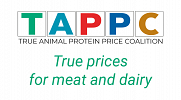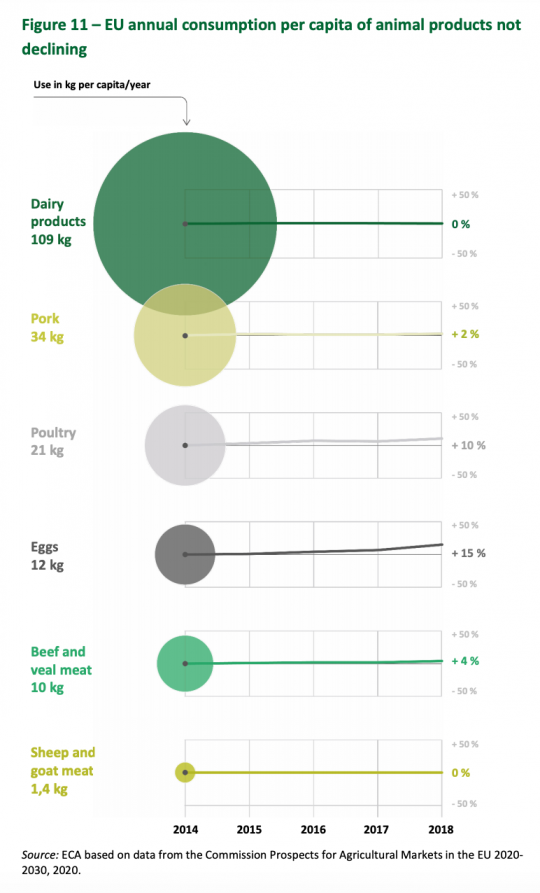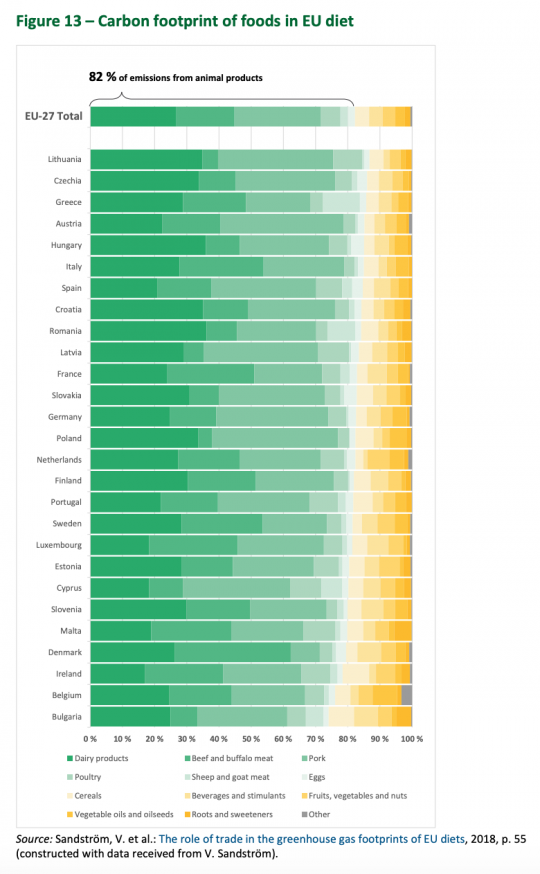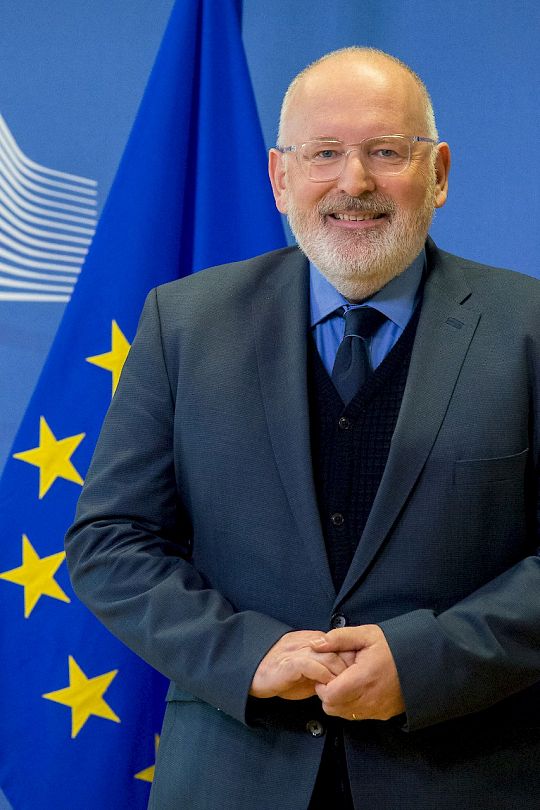EU Parliament vote 9-10 Sept on amendments Farm to Fork Strategy
The EU Parliament will vote 9-10 September about the EU Green Deal for food: the Farm to Fork Strategy. One amendment is about food prices: reducing prices for healthy food like vegetables and fruits (0% VAT tariff) and a higher VAT tariff for food products with a negative impact on environment or public health (like meat and sweet products).
The (combined) amendment about food prices :
"Underlines that food prices must send the right signal to consumers; considers that true food prices, reflecting the true cost of production for farmers and also for the environment and society, are the most efficient way to achieve sustainable and equitable food systems in the long term (AGRI rapporteur 1786, EPP 1751); welcomes, therefore, the strategy’s objective to steer guide (RE request) the food industry towards practices that make the healthy and sustainable choice the easy, accessible and (S&D 1307, NI 1780) affordable one for consumers; supports giving Member States more flexibility to differentiate in the VAT rates on food with different health and environmental impacts, and enable them to use choose (S&D request) a zero VAT tax for healthy and sustainable food products such as fruits and vegetables, as is already implemented in some Member States but not possible for all at this moment[1] (accommodating EPP/ECR), and a higher VAT rate on unhealthy food and food that has a high environmental footprint (Greens 1750, NI 1752, 1914, rapporteur 1793, 1803, EPP/RE 1846); recalls that household expenditure on food products varies significantly across EU Member States and affordability should be ensured for consumers in all Member States, while also ensuring fair income for primary producers for their sustainable and healthy products (RE 1766, 1767, EPP 1768, 1769, 1772, 1778) and increasing transparency and consumers’ awareness regarding the costs and profits related to each stage of the food supply chain (EPP 1751); invites the Commission to launch a study to quantify in economic terms the environmental and societal, including health-related, costs associated with the production and consumption of the most consumed food products on the EU market (Greens 1795, S&D 1801, Rapporteur 1805)" .
The TAPP Coalition asked the EU Commission in 2020 to make food price policy proposals (including a tax on meat and 0% VAT on vegetables and fruit) and the Commission responded positive in the Farm to Fork Strategy, published 20th May 2020. The EU Commission wrote that 'EU tax systems have to ensure that food prices reflect the real costs of pollution, greenhouse gas (GHG) emissions, and deforestation'. The Commission proposed a 0% VAT tariff for vegetables and fruits. See more details: https://tappcoalition.eu/nieuws/14050/eu
The EU Parliament however believes the EU Commission is not clear enough about fiscal changes for food products and other topics. The Parliament had the option to amend the (draft EU parliament report about the) EU Farm to Fork Strategy. Members of Parliament made over 2000 amendments for the EU Farm to Fork Strategy, of which over 50 relate to food prices and/or meat, supported and inspired by TAPP Coalition. TAPP Coalition is happy that those amendments are supported by MEPs from different political groups (Christian and Social Democrats, Liberals, Greens, Left parties). In the TAPP Coalition Position Paper about this topic, more info can be found.
The 5th of July the EU Commission published the EU Code of Conduct for Responsible Business and Marketing (for food products). This is the first deliverable of the Farm to Fork Strategy, which said that 'too low meat price marketing should be avoided' and a Code of Conduct has to be made to do so. In general this could has to support the goals of the Farm to Fork Strategy. If the Code will not work, EU legislation will follow, was written in the Farm to Fork Strategy. The EU Code of Conduct will be evaluated end of 2022, so in 2023 legislation proposals could start.
TAPP Coalition does not believe that a voluntary Code of Conduct will work to make healthy food cheaper and non healthy, non sustainable food products more expensive. We expect from politicians that they take responsibility and introduce fiscal proposals, to make healthy, sustainable food the most affordable, cheapest choice and not the most expensive choice as it is now.
The European Court of Auditors (ECA) asked the EU Commission for the polluter pays principe in the agriculture sector to reduce GHG-emissions. This was done in a recent publication: https://www.eca.europa.eu/en/Pages/DocItem.aspx?did=58913 The ECA wrote that greenhouse gas emissions in EU agriculture and food consumption did not decrease the last 10 years, although lot's of subsidies were given. Meat products contribute to over 80% of food related greenhouse gas emissions. The polluter pays principle for food products would mean that meat prices will increase most compared to other food products, and so meat consumption will reduce most.
The EU Commission replied the ECA that it will make a report with fiscal options how the polluter pays principle can be applied in the agri-food sector too. TAPP Coalition hopes that this will be the start of fiscal policies for products like meat and dairy, with highest GHG-emissions per kg food. In the same time farmers who reduce GHG emissions by carbon farming, should be supported financially. TAPP Coalition is promoting fiscal policies for food products for consumers, not for producers. In the end, consumers should pay the true costs of food, including all environmental costs. Governments can do so by introducing consumer taxes (excise duties) per kg, based on environmental criteria (polluter pays principle). Eg. GHG emissions can have a price, e.g 100 euro per ton CO2 equivalent.




